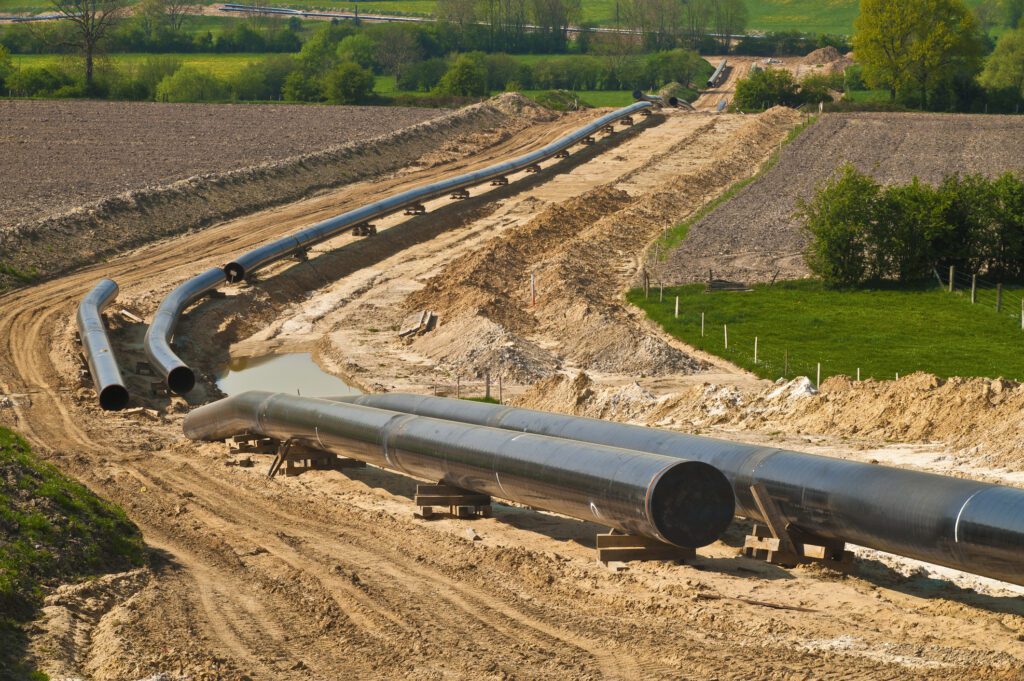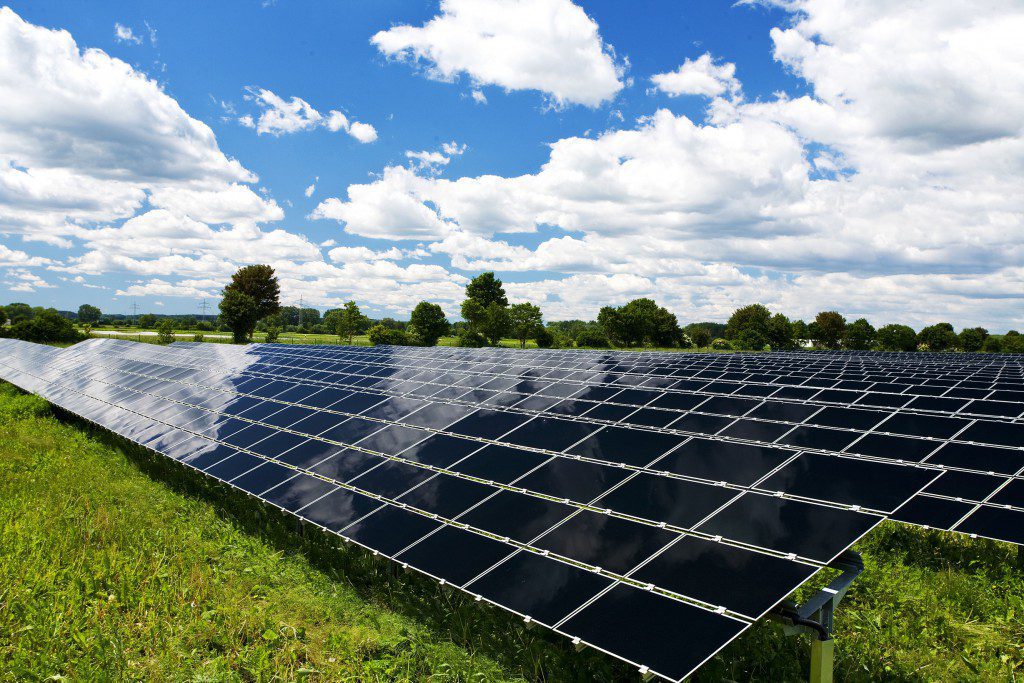ENVIRONMENTAL DEFENCE, INDIGENOUS CLIMATE ACTION
Indigenous nations impacted by pollution in the tar sands counter the Government of Alberta’s COP28 narrative of being a “clean energy leader”
Dubai, United Arab Emirates – Today, members from Indigenous communities downstream of the tar sands and environmental advocates held a demonstration in response to Alberta Premier Danielle Smith’s presence at COP28.
“Time and time again we have been told to trust that the Alberta Government and that government and industry have our best interests in mind,” shares Eriel Tchekwie Deranger, executive director of Indigenous Climate Action and member of Athabasca Chipewyan First Nation. “Not only do they continually fail to protect our lands and honour our rights, but they actively put all of the people of Alberta at risk by undermining a just and equitable transition within our province. It’s always profits before people in the tar sands and it’s our communities that pay the ultimate price.”
This year in the tar sands region, a major toxic tailings leak, which was covered up for nine months, made international headlines. However, the Alberta Energy Regulator absolved itself of any responsibility and conducted an ‘independent’ inquiry which reduced the concerns being raised to a communications issue rather than a failure to uphold their duty to Indigenous peoples.
Impacted Indigenous nations and environmental groups are holding governments accountable for permitting toxic waste to accumulate in the air, lands, and waters. They are also calling for the dismantling of the Alberta Energy Regulator.
“The Government of Alberta is on a greenwashing tour at COP28. Premier Smith is attending COP28 to sing the praises of the fossil fuel industry. Yet she continues to turn a blind eye to the active seepage of toxic tailings into Indigenous communities’ lands and waters, including the recent Imperial Oil spill and cover-up,” said Aliénor Rougeot, Climate and Energy Program Manager at Environmental Defence.
“The system is broken. It has been since industry arrived more than half a century ago. The regulator, meant to protect our people and our lands, has instead prioritized unchecked and rampant industrial growth. Project after project continues to be approved at the expense of our constitutionally protected Treaty rights. Stop the regulatory capture, and work with us, instead of against us, to save Mother Earth.” says Brian Fung, Manager Government Relations, Athabasca Chipewyan First Nation.
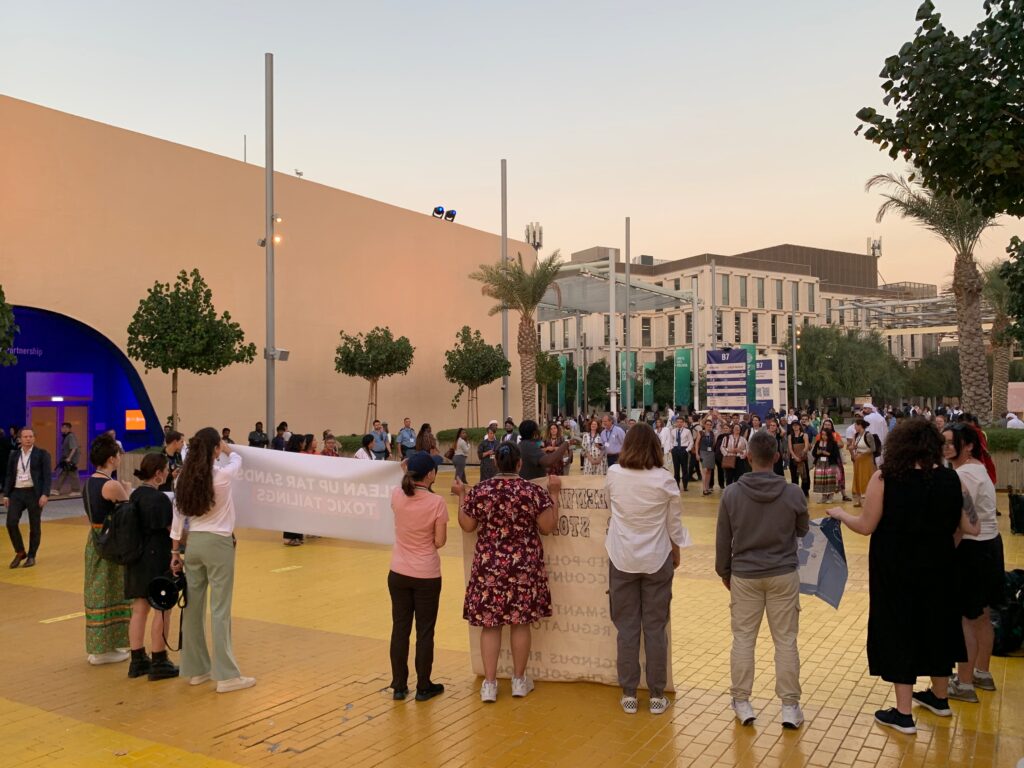

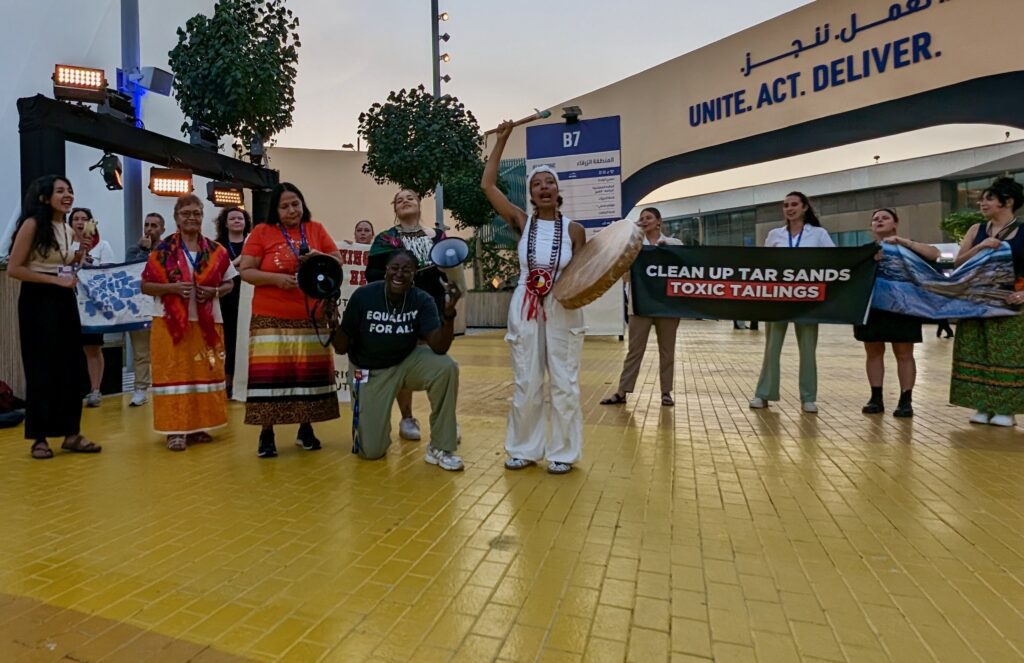

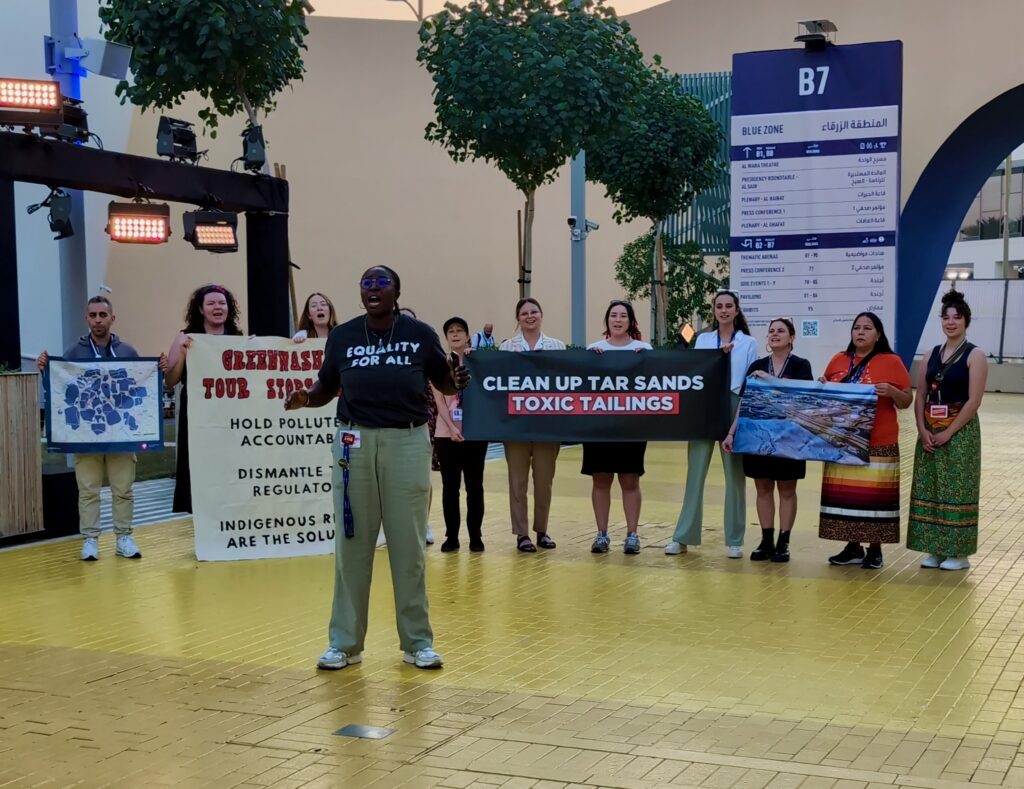

Photo credit: Environmental Defence Canada
Background information:
- Imperial Oil’s Kearl mine has not successfully stopped the seepage of its tailings pond into the Athabasca watershed.
- Local Indigenous communities, the federal government, and the public were not informed of the leak until a separate incident spilled an additional 5.3 million litres of wastewater into the environment.
- The tar sands’ tailings “ponds” now contain over 1.4 trillion litres of waste, covering an area more than 2.6 times the size of Vancouver.
- The oil industry’s solution to the toxic tailings issue is releasing industrial wastewater into the Athabasca River after minimal and unproven treatment. The Athabasca River is impacted gravely by overuse and contaminated by the large volume of discharges that occur annually. Being downstream from the industry’s extractive operations, Fort Chipewyan is one of several communities in the Athabasca Region through which toxins pass.
- For more information about tar sands tailings “ponds” please see this fact sheet.
ABOUT ENVIRONMENTAL DEFENCE (environmentaldefence.ca): Environmental Defence is a leading Canadian environmental advocacy organization that works with government, industry and individuals to defend clean water, a safe climate and healthy communities.
About INDIGENOUS CLIMATE ACTION (indigenousclimateaction.com) Indigenous Climate Action (ICA) is an Indigenous-led climate justice organization guided by a diverse group of Indigenous knowledge keepers, water protectors and land defenders from communities and regions across so-called Canada.
– 30 –
For more information or to request an interview, please contact:
Paula Gray, Environmental Defence, media@environmentaldefence.ca
Rosalyn Boucha, Indigenous Climate Action, media@indigenousclimateaction.com


